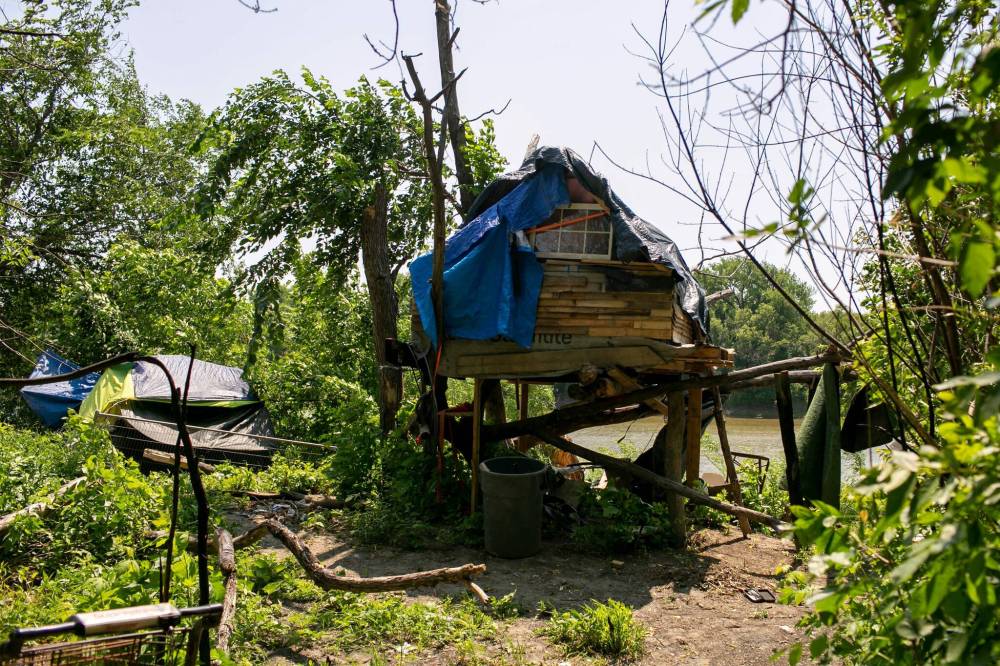Encampments and personal responsibilities
Advertisement
Read this article for free:
or
Already have an account? Log in here »
To continue reading, please subscribe:
Monthly Digital Subscription
$0 for the first 4 weeks*
- Enjoy unlimited reading on winnipegfreepress.com
- Read the E-Edition, our digital replica newspaper
- Access News Break, our award-winning app
- Play interactive puzzles
*No charge for 4 weeks then price increases to the regular rate of $19.00 plus GST every four weeks. Offer available to new and qualified returning subscribers only. Cancel any time.
Monthly Digital Subscription
$4.75/week*
- Enjoy unlimited reading on winnipegfreepress.com
- Read the E-Edition, our digital replica newspaper
- Access News Break, our award-winning app
- Play interactive puzzles
*Billed as $19 plus GST every four weeks. Cancel any time.
To continue reading, please subscribe:
Add Free Press access to your Brandon Sun subscription for only an additional
$1 for the first 4 weeks*
*Your next subscription payment will increase by $1.00 and you will be charged $16.99 plus GST for four weeks. After four weeks, your payment will increase to $23.99 plus GST every four weeks.
Read unlimited articles for free today:
or
Already have an account? Log in here »
Some parts of Winnipeg have a noxious problem on their hands.
Among behaviours by the residents of homeless encampments causing consternation among other Winnipeggers near the sites, the act of burning cable and wires in order to cash in on the metallic components is, literally, a toxic one.
It’s a problem firefighters have had to contend with, and one local authorities seem ill-equipped to address. Wire burning poses serious short-term and long-term health risks; the burning wires release carcinogens into the atmosphere and those exposed are at a higher risk of developing cancer.

BROOK JONES/FREE PRESS
An encampment on the bank of the Red River along the North Winnipeg Parkway
Winnipegger Howard Warren told the Free Press he has asked residents of an encampment near his home to cease burning wires, but says his requests have been rebuffed. Warren pointed out that, were he to do the same in his own yard, his neighbours would likely complain and he may face penalties under the law.
He’s right, and the double-standard reveals a major problem, one with which those sympathetic to the encampments will have to contend.
In late June, this paper shed light on an element of encampment life which put to the test the common stereotype that residents of homeless encampments are there because they have no other choice. Some residents, the June 25 story revealed, prefer to live in encampments.
“These are the people I trust, instead of somebody I don’t trust or don’t know,” one encampment resident, identified as Joseph, told the Free Press. He was unimpressed by provincial plans to end homelessness by 2031. “And why? We don’t have to pay rent. Why would I pay $600 for someone to tell me how to live when I could pay nothing and live how I want to live?”
It’s a whimsical notion, and one easy to be sympathetic to. Modern life is fraught with high costs and irritating obligations. And some people are not well-equipped or inclined to take part in the 21st-century rat-race.
So let’s indulge that thought for just a moment, that encampments in the city could be treated as permanent settlements for those who are not calibrated to the “ordinary,” way of living. And let’s narrow the focus to those who do have the choice, and not those who live in encampments because mental health issues or addictions leave them little choice. What does this idealized arrangement demand of everybody involved?
Without wanting to besmirch the character of the aforementioned Joseph, let’s zoom in on one comment he made: why should he want to pay rent “for someone to tell me how to live…?”
That’s the sticking point, here: for all the talk among some encampment residents and their advocates about how the encampments provide protective, tight-knit communities for their residents, there is a distinct antisocial streak within them, one which makes the encampments dangerous and antagonistic to the rest of the city around them.
Even in a world without all of the expectations which come with modern living, there is still such a thing as the social contract — a set of expectations placed on the individual which, while varying between cultures, is a fact of life across human civilization. In the distant past, one might have been free to pitch one’s tent wherever worked, but there remained a social requirement to behave in a way that was not burdensome or dangerous to everyone else.
While encampments may be a preferred way of life for some, they cannot and should not be a way to opt out entirely from the social contract. Encampments are not going to be a sustainable reality for the people living in them if their establishment is followed by trash littering the area, unsafe and toxic fires burning through the night, and other disruptive or criminal activities.
Some people may be willing to look at those choosing the encampment life and say “live and let live,” — but it’s not going to happen if encampment residents can’t figure out how to be better neighbours.




